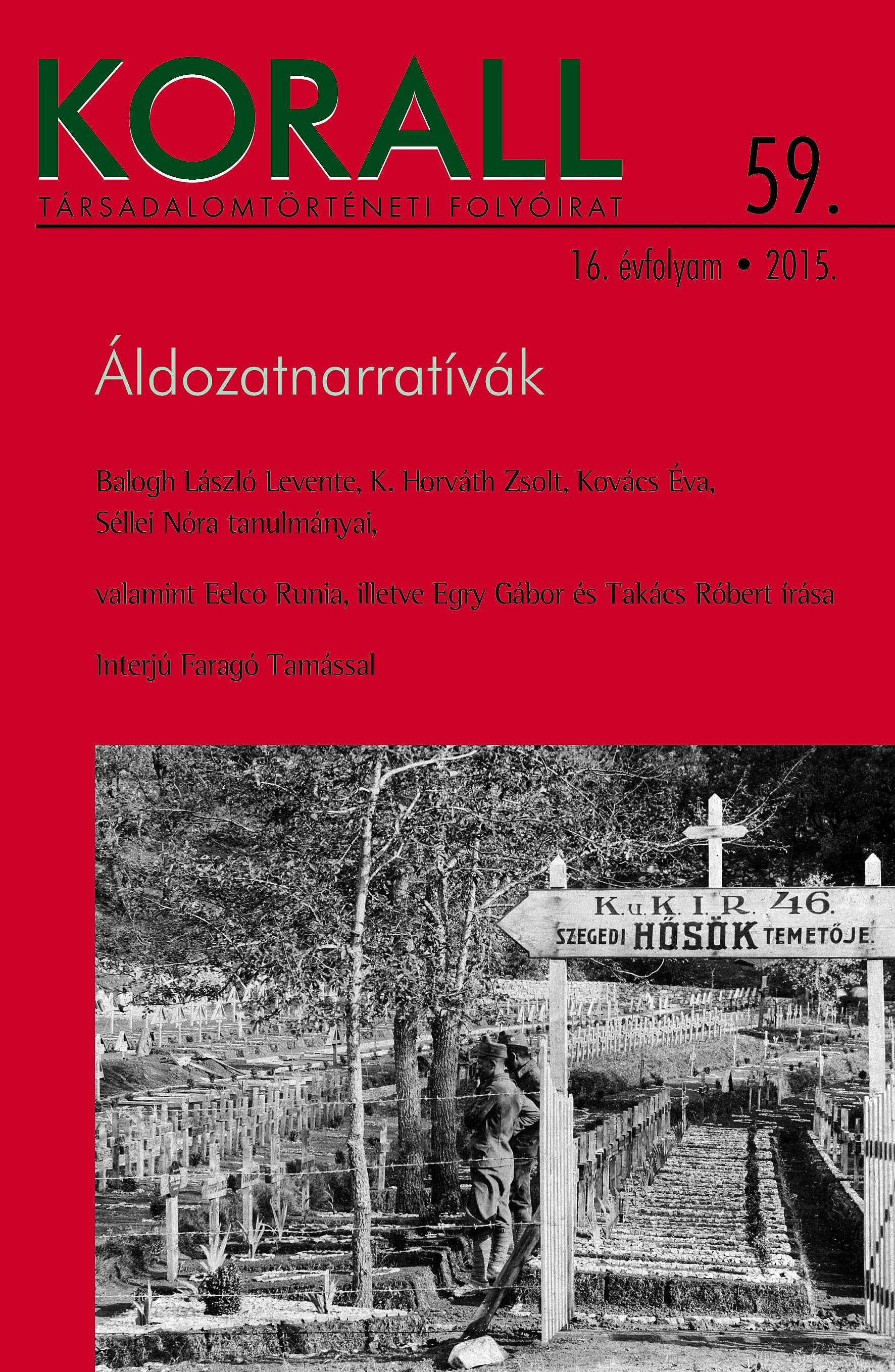A magyar nemzeti áldozatnarratíva változásai
Shifting meanings in the Hungarian national narrative of sacrifice and victimhood
Author(s): László Levente BaloghSubject(s): History
Published by: KORALL Társadalomtörténeti Egyesület
Keywords: history;
Summary/Abstract: The study traces the transformation of the meaning of ‘áldozat’ from sacrifice to victim through certain events of Hungarian history, from the Hungarian defeat of the 1848–49 war of independence and the outbreak of the First World War as reflected in contemporary sources; to historical interpretations of the 1920 Treaty of Trianon and the German occupation. The author reconstructs the process in which the ‘passive turn’ of the term resulted in a shift from passion to rhetorics. The argument is supported by examples such as paintings of historical subjects, as well as the past and present practice of erecting commemorative monuments, as these are the most telling manifestations of the culture of memory and politically informed interpretations of history. From the nineteenth century onwards, paintings and monuments of historical subjects have become medial constructions which were believed to represent the foundations of national identity, and as such, they are peerless source material for the analysis of the changing concept of collective sacrifice and victimhood.
Journal: Korall - Társadalomtörténeti folyóirat
- Issue Year: 2015
- Issue No: 59
- Page Range: 36-53
- Page Count: 18
- Language: Hungarian

